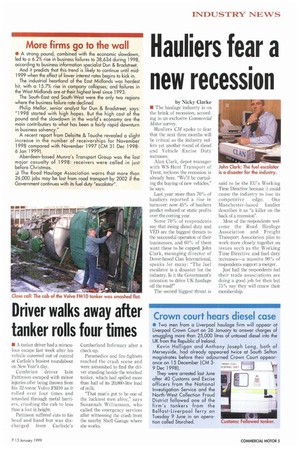More firms go to the wall
Page 7

If you've noticed an error in this article please click here to report it so we can fix it.
• A strong pound, combined with the economic slowdown, led to a 6.2% rise in business failures to 381634 during 1998, according to business information specialist Dun & Bradstreet.
And it predicts that this trend is likely to continue until mid1999 when the effect of lower interest rates begins to kick in. The industrial heartland of the East Midlands was hardest hit, with a 15.7% rise in company collapses; and failures in the West Midlands are at their highest level since 1993. The South-East and South-West were the only two regions where the business failure rate declined.
Philip Mellor, senior analyst for Dun & Bradstreet, says: "1998 started with high hopes. But the high cost of the pound and the slowdown in the world's economy are the main contributors to what has been a fairly rapid (downturn in business solvency." A recent report from Deloitte & Touche revealed a slight increase in the number of receiverships for November 1998 compared with November 1997 (CM 31 Dec 19986 Jan 1999).
Aberdeen-based Munro's Transport Group was the last major casualty of 1998: receivers were called in just before Christmas.
J The Road Haulage Association warns that more than 26,000 jobs may be lost from road transport by 2002 if the Government continues with its fuel duty "escalator".
































































































